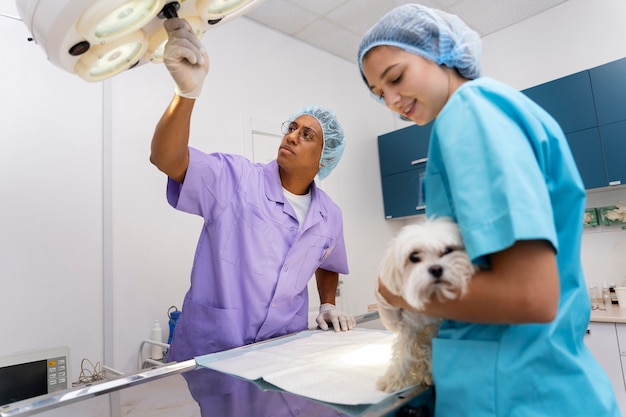New Kitten Care Information


Vaccinations:
- FVRCP: (Feline Viral Rhinotracheitis, Calici, and Panleukopenia). This vaccine is commonly referred to as feline distemper. We recommend the first dose be given around 8 weeks of age and then repeated every 3-4 weeks until the kitten is 16-20 weeks old. The vaccine is then repeated in one year.
- Rabies: Rabies vaccine is first given at 12 weeks of age or older and then repeated yearly. The rabies vaccine is recommended for all cats. Most exposure to the rabies virus occurs indoors from bats.
- Feline Leukemia (FeLV): This contagious retrovirus is a leading cause of death in cats. It is transmitted by licking or biting and may be passed from mother to kittens during pregnancy. We recommend that all cats be tested for FeLV. The FeLV vaccine is first given around 12 weeks of age, repeated in 3-4 weeks and then annually depending on lifestyle. Strictly indoor adult cats do not require the FeLV vaccine.
Viral Diseases:
Feline Immunodeficiency Virus (FIV): This retrovirus is in the same class as the human AIDS virus. We recommend that all new cats be tested for FIV. This virus causes an immune deficiency syndrome in cats and is primarily spread by bite wounds. FeLV/FIV testing is a test that usually occurs at the time of spay/neuter.
Diet:
We recommend that kittens primarily be on dry food but also have a mixture of wet food added into their diet. On occasion if a kitten does not get wet food at a young age, they will not eat it when older. It is best to meal feed cats. Cats fed dry food freely throughout the day frequently become obese, and obesity may have serious health consequences. Recommended brands include Purina One, Purina Pro Plan, Hills Science Diet, Royal Canin or Iams.
Internal Parasites:
We routinely administer deworming medication to kittens because they are frequently born with roundworms and several treatments may be necessary to eliminate them. It is recommended to have a fecal exam done at the first and second visit, and then yearly thereafter.
External Parasites:
Revolution Plus is an easy and effective topical treatment for the control of fleas, ticks, heartworms, and ear mites for cats. Monthly prevention is recommended year round for all cats including those that are strictly indoor. Bugs and parasites can make their way into our homes or hitch a ride on us or other pets in the house. Monthly preventatives are an effective way to protect your cat.
Spay & Neuter:
We recommend that cats be spayed and neutered at 6 months of age. Spaying a cat prior to the first heat cycle will minimize the chances of mammary cancer as the cat ages. Neutering may help spraying, roaming, fighting, etc.
Dental Care:
Appropriate dental care may be the most important thing that you can do to improve the quality and health of your cat’s life. Certain diets such as Science Diet Oral Care may be helpful in preventing periodontal disease. Periodic cleanings are necessary for most cats.
Identification:
We recommend some kind of identification for all pets. We offer a Pet Link microchip. This is given by a simple injection under the skin during an office visit or preferably at the time of their spay/neuter while under anesthesia. Visit www.petlink.net for more information.
Carriers:
We strongly encourage you to always bring your cat in a carrier. Traveling is unnatural to cats. They are very insecure outside of their personal territory and can become frightened and get lost.
Emergencies:
For after hours emergencies contact one of the following emergency hospitals:
- PVSEC South at 724-809-2000
- PVSEC North at 412-366-3400
- MedVet at 724-717-2273
- AVets at 412-373-4200
Congratulations on your new kitten! It is our goal to provide you with the highest quality services and information so you can have the best possible relationship with your kitten and give them a long and healthy life!



















